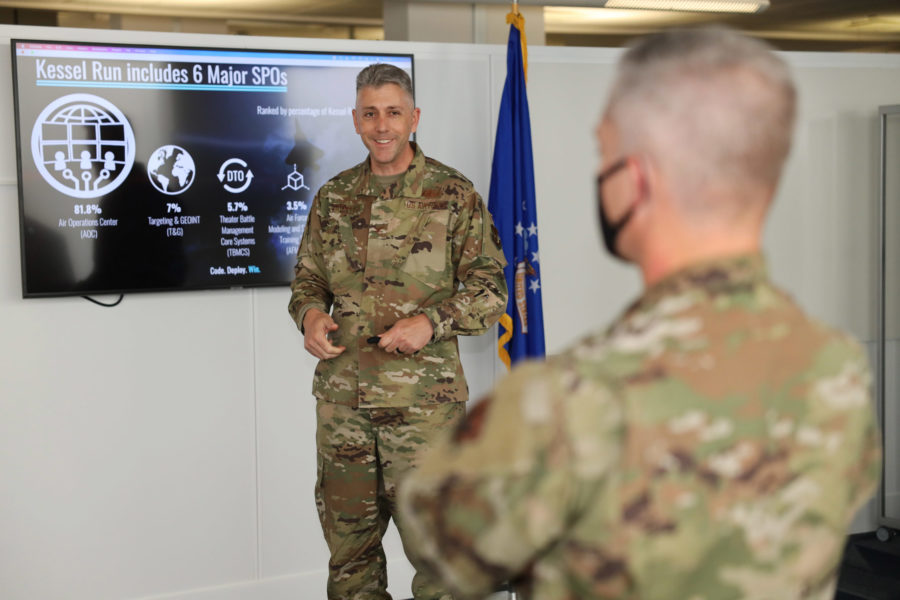Lt. Gen. Timothy D. Haugh, deputy commander of U.S. Cyber Command, will be nominated to lead CYBERCOM and the National Security Agency, Air Force and defense officials confirmed May 23.
The nomination, which has not yet been officially announced, was first reported by Politico. If confirmed by the Senate, Haugh will be the first Airman ever to lead CYBERCOM, which was established in 2010, five years after then-Lt. Gen. Michael Hayden left office as director of the NSA. Hayden went on to become Principal Deputy Director of National Intelligence and then Director of the CIA.
Haugh has been the deputy at CYBERCOM since last summer and would succeed Army Gen. Paul M. Nakasone, who is retiring. He was commander of the 16th Air Force, also known as Air Forces Cyber, before that.
Haugh has commanded at the squadron, group, wing levels as well, and had a stint as director of intelligence at CYBERCOM.
As the 16th Air Force’s first commander after its reactivation, Haugh was tasked by Air Combat Command boss Gen. Mark D. Kelly with leading ACC’s shift in culture from a focus on short-term combat to one of long-term competition. In that role, he built a new command responsible for cyber, spectrum, and information warfare, areas in the so-called “gray zone” of conflict. It oversees wings with missions ranging from intelligence, surveillance, and reconnaissance to cyberspace and weather.
As chief of CYBERCOM and the NSA, Haugh will lead some 27,000 people, the vast majority employed at the nation’s foremost signals intelligence agency. He will be the chief officer responsible for countering cyber warfare threats from Russia, China, North Korea, and others. Nakasone, At a March hearing before the Senate Armed Services Committee, he warned that Russia remains a “very capable adversary” in cyberspace, and that the hugely popular social media app TikTok, owned by Chinese company ByteDance, could be a means of data collection for the Chinese government and enable potential influence operations.
Congress is considering whether it will reauthorize programs under Section 702 of the Foreign Intelligence Surveillance Act set to expire at the end of the year. The programs play a key role in NSA operations, and Nakasone has urged lawmakers to renew it.
Some in Congress have also questioned whether the time has come to assign separate commanders to lead NSA and CYBERCOM, which have been be dual-hatted since CYBERCOM was launched 13 years ago. Others have wondered if the time has come to establish a separate military branch for cyber operations, as the U.S. did with the Space Force in 2019.
Nakasone said in written testimony for the March hearing that a recent study from high-level defense and intelligence officials concluded there are “substantial benefits that present compelling evidence for retaining the existing structure.”
Haugh’s nomination may take some time to get through the Senate, meanwhile. Sen. Tommy Tuberville (R-Ala.) has placed a hold on all general officer promotions to protest a Biden administration policy that reimburses troops who must travel out-of-state to obtain a legal abortion. Tuberville says the policy violates the Hyde Amendment, which bars federal funding for abortions. Opponents say Tuberville should drop the hold and take the matter up as part of the annual defense authorization process.
The standoff is now holding up 200 nominations, and others are already in the works.
The Wall Street Journal first reported Nakasone’s planned departure in the “coming months” on May 10. If Haugh is not confirmed by the Senate before then, he may take over as acting commander of CYBERCOM. However, the NSA’s deputy director is a civilian, George Barnes.
